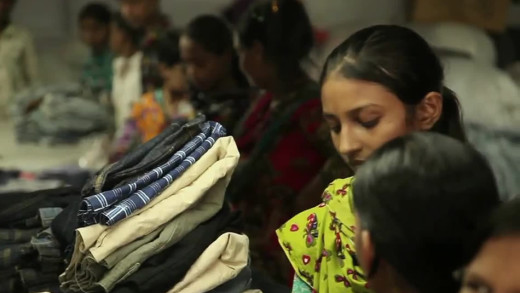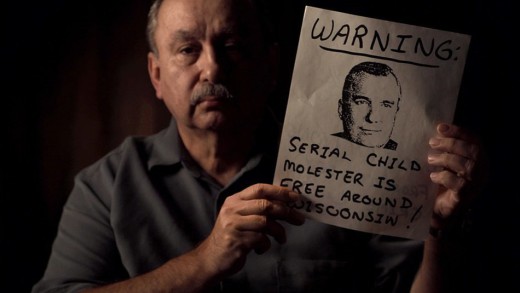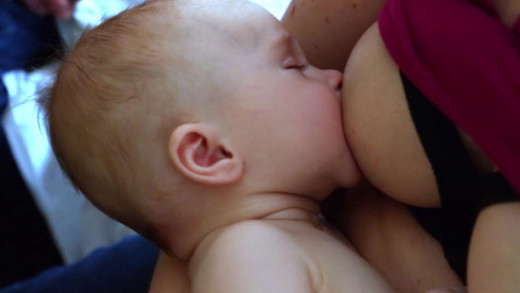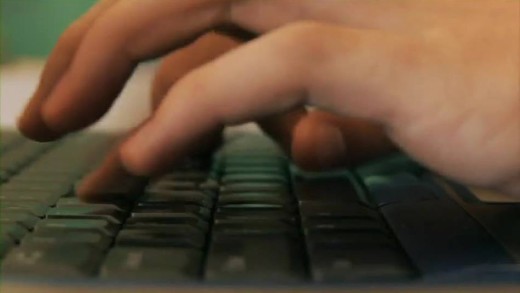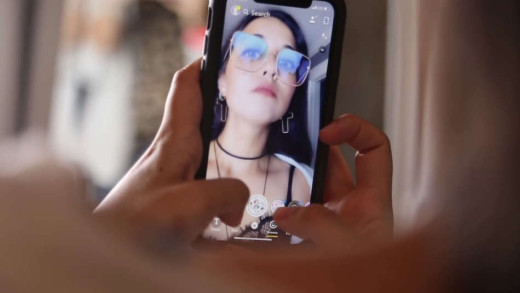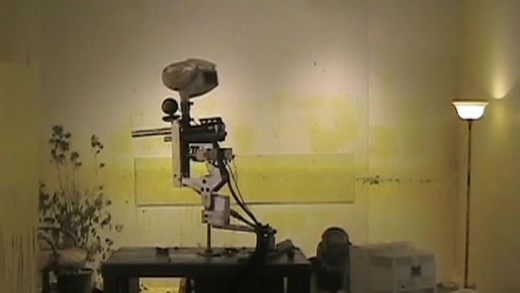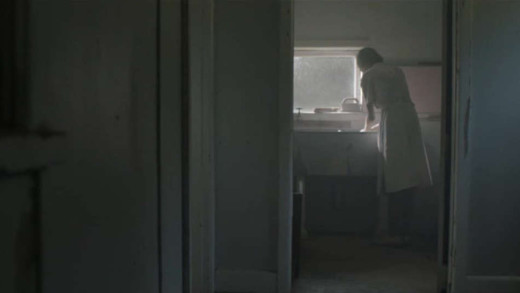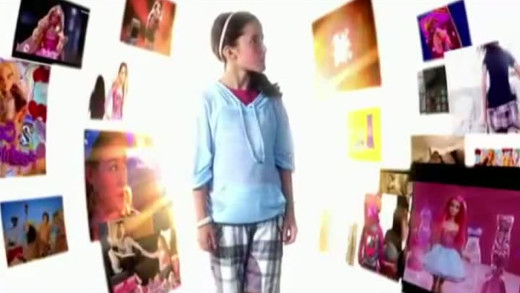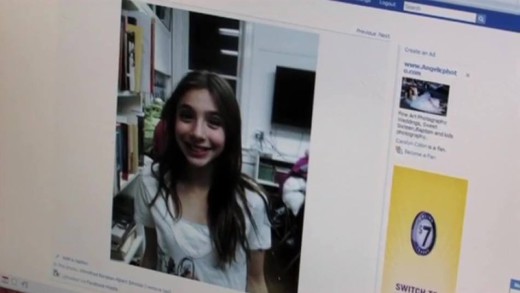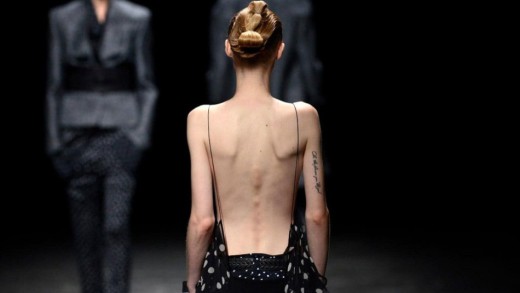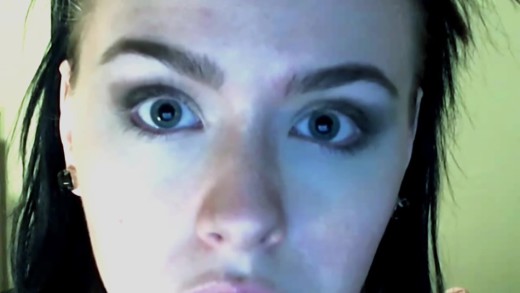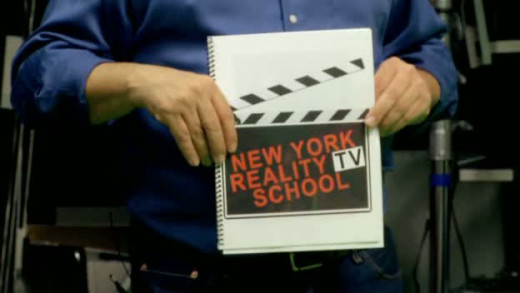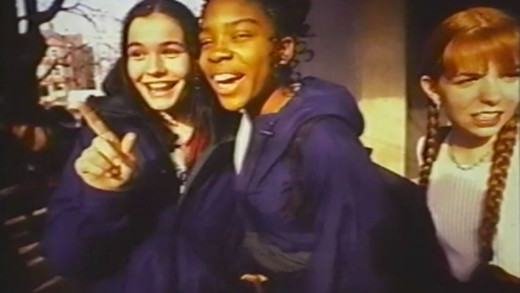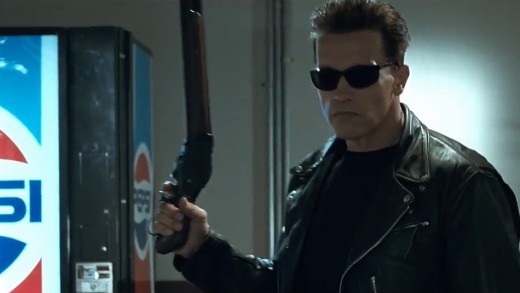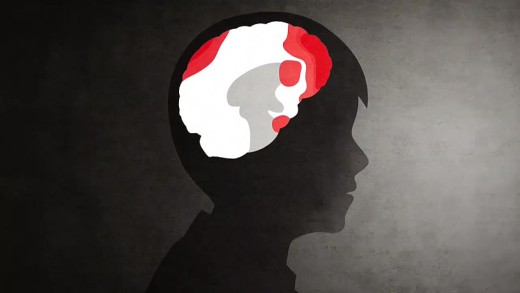In November 2012, yet another incident at a textiles factory in Bangladesh killed at least 112 people. Walmart’s brand shorts were among the clothing found in the charred remains. Walmart blamed its supplier, saying the order had been sub-contracted without its permission. With this example among the many, Made in Bangladesh illustrates the complex organisation of corporate obfuscation--the industries that continue to drive sweat shops, slave labour and child labour under a very clever hall of mirrors...
Mea Maxima Culpa: Silence in the House of God examines the systemic abuse of children in the Catholic Church told through the story of four deaf men who set out to expose the priest who abused them during the mid-1960s. Each of the men brought forth the first known case of public protest against clerical sex abuse, which later lead to the sex scandal case known as the Lawrence Murphy case. Through their case, the film follows a cover-up that winds its way from the row houses of Milwaukee, Wisconsin, through to Ireland's churches, and all the way to the highest office of the Vatican.
The Disney Company's massive success in the 20th century is based on creating an image of innocence, magic and fun for kids. Its animated films in particular are almost universally lauded as wholesome family entertainment, enjoying massive popularity among children and endorsement from parents and teachers around the world. This film takes a close look at Disney, to analyse the world these films create for kids and the stories they tell and propagate; contextualised by the cultural pedagogy of Disney's conglomerate mass-media control and vast corporate power. Including interviews with social commentators, media scholars, child psychologists, kindergarten teachers, multicultural educators, college students and children, Mickey Mouse Monopoly provokes audiences to confront assumptions about an institution that is virtually synonymous with childhood pleasure.
Traversing the judgement placed on women who bottle-feed their babies, to the stigma surrounding mothers who breast-feed their toddlers, and the stigma of breast-feeding in public, the polarised topic surrounding breast-feeding sets off an emotional and personal debate in a highly eroticised culture, where it is hard for some to remember that breasts have a purpose that is not selling cars, beer, and sex. Milk investigates the overarching themes surrounding the commercialisation of infant feeding and its effects on child mortality, as well as the challenges it presents to adequate health worker training and the judgement placed on women regardless of how they choose to feed their babies. Milk also shows the natural world juxtaposed to the industrialised way in which we receive a new life into this world. Milk follows stories of mothers from different cultures spanning 11 countries, as it reveals the universal issues and challenges facing motherhood and birth today.
Over 18: The Question is Not Enough is a broad examination of modern pornography. For just a generation ago, porn was on the fringe in glossy magazines. Today, porn is mainstream and even celebrated. But as softcore imagery migrated into popular culture through advertising and became normalised, today's mainstream porn is hardcore and explicit in order to distinguish itself. Now too, with the pervasiveness of the Internet, graphic video is also increasingly exposed to young people. Over 18 tells the story of Joseph, a 13-year-old boy who is recovering from a porn addiction that he fell into when he was just 9 years old--a case that is not unexceptional. By exploring what today's mainstream porn is and how it captures people through candid interviews with porn producers and ex-porn stars themselves, Over 18 also provides research from academics, and life experience from recovering addicts, to take aim at the content of modern pornography and its existence as an industry.
One generation from now, most people in the United States will have spent more time in the virtual world than in the natural world. New media technologies have changed lives in countless ways. Streams of information now appears in a click. Overseas friends are contactable in an instant. Engulfing video games and streams of endless entertainment to stimulate the senses, dazzle the mind and pander to the acculturated desire to be in control. Even grandma loves Wii. But what are people missing when they're behind screens? How is it already impacting our children, our society, and the planet? At a time when people are at screens more than they are outside, Play Again explores the challenge in dealing with the addiction and returning to the real world...
With economic collapse besieging the United States, domestic violence statistics show a sharp increase in violence against women. States are closing shelters and cutting support programs, and the culture ignores domestic violence, except when celebrities are involved on TV. In the meantime, more spouses have been killed by their partners in the past several years than soldiers have been killed in Iraq. Power and Control addresses this life and death issue during a time of urgent crisis, a timely and comprehensive exploration of physical and emotional abuse in dominant culture, as refracted through the story of Kim Mosher, a mother of three who has recently left her abusive husband. As Kim and her fragile daughters take up residence in a domestic violence shelter, the film follows the harrowing struggles in a single-parenting survivor's quest to find work, housing and peace of mind. We also meet Kim's husband, Josh, himself a survivor of abuse. His attempts to explain his behaviour are troubling--shocking in the context of the story's final twist. The multi-level narrative also examines the root causes of domestic violence and the solutions that have evolved to stop it, celebrating the battered women's movement activists who demanded revolutionary change in the 1980s, and examining alternative approaches now being advocated.
A 37-year old mum goes undercover as an 11-year old girl to expose the dangers facing kids on social media platforms like Instagram, Snapchat, TikTok, and Kik. Left unsupervised, young children can be exposed to online predators, grooming, and psychological abuse within minutes. In 2018 alone, the filmmakers of this project alerted the FBI to 99 child predators. In 2019 that number is more than 300 and counting. Each of these cases represents a real child experiencing real harm, and the challenge of this short film is to help parents and schools understand this new reality, while also acting to bring online predators, groomers, and paedophiles to justice.
How does the military train the solider of tomorrow? Video games. The most popular games are those that replicate as close as possible the war events as seen on the news. Such games now far outpace the biggest Hollywood blockbuster movies, popular music, and best-selling books, combined. What does this complete immersion in high-tech war mean for our political culture? As well as those directly affected by state violence? What does it mean when the technological sophistication of modern militarism become forms of mass entertainment? Returning Fire profiles three artists and activists that decided these questions needed to be answered. We see how Anne-Marie Schleiner, Wafaa Bilal, and Joseph Delappe moved dissent from the streets to the screens, infiltrating war games in an attempt to break their hypnotic spell. The results ask all of us--gamers and non-gamers alike--to think critically about what it means when drones and remote warfare become computer games and visa versa. Can we reflect on our capacity to empathise with people directly affected by the trauma of real war?
Physician and mother of two Dr. Delaney Ruston became interested in how much screen time is too much when her preteen started begging for a smartphone. Ruston saw other parents equally confused on how to balance technology with a young developing mind, so she decided to delve into the science behind screen time to understand how it affects young people's minds and development. Through personal stories and input from leading researchers, the result is Screenagers, a film that sheds light on the impact screen time is having on kids; exploring how learning, playing, and socialising online effects teens' developing attention span, fragile self-esteem, and moral instincts. Screenagers examines the real risks of failing in school, social isolation, and digital addiction. It also explores solutions to handle screen time and provides parents with tools to help young people develop self-control and find balance in their digital lives, rather than rapid-fire thumbs and a six-second attention span.
Servant or Slave follows the lives of five Aboriginal women who were stolen from their families and forced into indentured labour to be domestic "servants" for white people during the late 1890s and into 1900s in Australia. With the government exercising complete control over their wages and livelihood, many thousands of Aboriginal children were condemned to a treadmill of abuse, battery, rape, and slavery, only to discover that even today they've had to fight for recognition, respect and reparation for their treatment in the past. This film recounts their experiences, as a portrait of courage, strength and the fortitude to pursue justice for the crimes committed against them.
Using undercover filming, Sex and Survival in Madagascar exposes the booming child sex trade of the 21st Century. In the hub of Madagascar, one of the world's poorest countries, prostitution is rampant and seen as an unavoidable means of survival. The film shows the complicity and complacency of authorities that do not act to stop this terror, and so the acts of resistance against sex slavery are carried out by the children themselves.
From tiny tots strutting bikini-clad bodies in beauty pageants to companies marketing itty-bitty thongs and padded bras directly to 9-year olds; images of ever-younger sexualised girls pervasively saturate the media landscape. Add to that: ever-younger boys with 24-7 access to hard-core internet porn and the situation permeates every aspect of their lives--from skate parks to the school bus. By the time they’re eighteen, 80 percent of boys are watching porn online. Then add to that smart phones and social networking websites, and kids can not only consume X-rated images, but can now also produce them. Sexting has become a Grade 7 right of passage. Sext Up Kids exposes how growing up in a hyper-sexualized culture hurts everyone. Teens and pre-teens show and tell what they are doing and why they are doing it. Psychologists and social researchers reveal startling new evidence, tracking how the pressure to be sexy is changing teen and sexual behaviour in alarming ways. Parents and educators struggle to help kids navigate puberty in a world where the line between pop culture and porn culture is increasingly blurred. For every parent who thinks, “that’s not my son or daughter,” Sext Up Kids is your wake up call.
An ex-pornstar, a 12 year old girl, and a 22 year old who yearns for the 'normal' genitals as seen in porn movies, are just some of whom are chronicled in Sexy Baby to draw together how the current relentless culture of pornography, social media and popular culture are deeply and profoundly affecting the lives women and girls. Based on intimate and candid conversations with kids in middle school classrooms, suburban shopping malls, nightclubs, college dorms, and high school house parties, the film chronicles trends among small town and big city kids--the pervasive culture affects everyone, everywhere. Most youngsters know someone who has emailed or texted a naked photo of themselves. Many kids have accidentally or intentionally had their first introduction to sex be via hardcore pornography online. Facebook has created an arena where kids compete to be "liked" and constantly worry about what image to portray. Much of what was once private is now made public. The list goes on. Sexy Baby is a powerful indictment of the Internet age and the hyper-sexualised culture affecting women and girls everywhere, as well as an insight into the struggle of parents navigating this new culture, wanting what is best for their kids and the generations to come.
Slim Hopes shows how the stories advertising tells us about food, femininity, and the female body directly contribute to anorexia, bulimia, and other life-threatening eating disorders. From ads that glamorise emotional eating with catch-phrases like "you can never have too much," to ads that promote thinness and tell women to watch what they eat, Slim Hopes takes the advertising industry to task for sending young women in particular, a set of deeply contradictory and unhealthy messages about food and body image.
We live in a world of screens. The average adult spends the majority of their waking hours in front of some sort of screen or device. We're enthralled, we're addicted to these machines. How did we get here? Who benefits? What are the cumulative impacts on people, society and the environment? What may come next if this culture is left unchecked, to its end trajectory, and is that what we want? Stare Into The Lights My Pretties investigates these questions with an urge to return to the real physical world, to form a critical view of technological escalation driven rapacious and pervasive corporate interest. Covering themes of addiction, privacy, surveillance, information manipulation, behaviour modification and social control, the film lays the foundations as to why we may feel like we're sleeprunning into some dystopian nightmare with the machines at the helm. Because we are, if we don't seriously avert our eyes to stop this culture from destroying what is left of the real world.
By planting a variety of fake celebrity-related stories in the UK media and having tabloid newspapers accept them without corroboration or evidence, Starsuckers navigates through the shams and deceit involved in creating a pernicious celebrity culture, uncovering the real reasons behind the addiction to fame and the corporations and individuals who profit from it.
Steve Jobs: The Man in the Machine is not just another celebratory biographical film about the life of a business man that many around the world grieved in 2011. It's a full rounded critical examination into the fundamentals of a person revered as an iconoclast, a barbed-tongued tyrant, a business sociopath. The real Steve Jobs is revealed like this through candid interviews from those who had close relationships with him at different stages of his life, including the mother of his child, Lisa, that Jobs refused he had, but named a computer after instead. The film also takes us through the evocative essence of the brand of Apple Computers which has captured the population like zombies, and asks the question: What is the legacy of this industry, and the truth of this kind of person that the culture celebrates so much, completely ignoring the darkness?
Sugar Coated investigates a once secret public relations campaign, dating back to the 1970s, where the sugar industry deflected threats to its multi-billion dollar empire from scientific research emerging implicating processed sugar with adverse health effects. In order to continue sweetening the world's food supply, thus securing continued profits, the sugar industry turned to the very same deceptions and tactics lifted from the tobacco industry. Using big sugar's own internal documents on this strategy, Sugar Coated reveals the well-oiled tricks of the trade to confuse the public about what is really driving the global pandemic of obesity, diabetes, and heart disease. Will we be fooled again?
This film examines the forces of culture influencing young people's decisions about sex: media, family, religion, alcohol, and so on. By examining the cultural environment in this way, this film becomes a tool for facilitating informed discussions about the myriad influences facing young people. Filmmaker Dan Habib features the stories of eight young people, ages 16-24, and weaves them with observations about the messages young people get from popular culture.
Thalidomide: The Ninety-Eight We Forgot follows a four-year investigation on behalf of a group of children damaged at birth by the drug Thalidomide which was introduced in the late 1950s to treat morning sickness and to aid sleep. The drug caused birth deformities, such as phocomelia, with more than 10,000 children in 46 countries born with deformities. This film investigates why a group of people are excluded from compensation from the effects of Thalidomide by various legal proceedings—still relevant today in the context of how the legal system continues to protect corporations at the expense of life itself.
The Bro Code unpacks and takes aim at the forces of masculinity that condition boys and men to fundamentally dehumanise and disrespect women. The film breaks down a range of contemporary media forms that are saturated with sexism—movies and music videos that glamorise misogyny, pornography that trades in the brutalisation and commodification of women, comedy routines that make light of sexual assault, and a slate of men's magazines and TV shows that propagate myths of what it means to be a man in this culture: that it's not only normal, but "cool" for boys and men to control and humiliate women. There's nothing natural or inevitable about this mentality. And it's extremely harmful in the real world. By setting the myths against reality, The Bro Code challenges young people to step up and fight back against this culture, to reject the fundamental idea that being a 'real man' means disrespecting women.
The Dark Side Of Chocolate follows a team of investigative reporters into Africa where human trafficking and child labour fuel the chocolate industry worldwide. The film travels to Mali where hidden footage reveals the trafficking of small children to the cocoa fields in the neighbouring Ivory Coast and elsewhere. What is happening behind the sweet imagery of the chocolate industry?
The Empathy Gap investigates how dominant culture bombards young men with sexist and misogynistic messages and argues that these messages not only devalue women but also undercut men's innate capacity for caring and empathy. The film looks closely at the ways these messages short-circuit men's ability to empathize with women, respect them as equals, and take feminism seriously, drawing parallels between sexism and racism, spelling out how each is rooted in cultural norms that discourage empathy, and shows how men who break with these norms live happier and healthier lives.
Robert Beckford visits Ghana to investigate the hidden costs of rice, chocolate and gold and why, 50 years after independence, a country so rich in 'natural resources' is one of the poorest in the world. He discovers child labourers farming cocoa instead of attending school and asks if the activities of multinationals, the World Bank and International Monetary Fund have actually made the country’s problems worse...
The Illusionists examines how global advertising firms, mass media, and the beauty, fashion, and cosmetic-surgery industries have together colonised the way people all around the world define beauty and see themselves. Taking us from Harvard to the halls of the Louvre, from a cosmetic surgeon's office in Beirut to the heart of Tokyo's Electric Town, The Illusionists shows how these industries saturate our lives with narrow, Westernised, consumer-driven images of so-called beauty that show little to no respect for biological realities or cultural differences. Featuring voices from prominent sociologists, magazine editors, scientists, artists, and activists, The Illusionists documents a truly global phenomenon, with hegemonic results.
By addressing the question of violence and the media from a number of different angles, The Killing Screens presents a comprehensive view on how to think about the effects of the media environment in new and complex ways. In contrast to the relatively simplistic behaviourist model, that "media violence causes real-world violence," renowned media scholar and researcher George Gerbner shows us how to think about the psychological, political, social, and developmental impacts of growing up and living within a cultural environment of pervasive violent imagery and narratives. What are some of the impacts of this culture and what can be done about it?
The Mask You Live In unpacks how this culture's narrow and harmful definition of masculinity effects boys, young men; girls and women; and society in general in myriad ways, as our children struggle to stay true to themselves when confronted by this culture. Pressured by their peer group, heavily influenced by a barrage of media messages, and even their very own parents and other adults in their lives, our protagonists confront messages encouraging them to disconnect from and suppress their emotions, devalue authentic friendships, objectify and degrade women, and resolve conflicts through violence, control and manipulation. These traits and stereotypes closely interconnect with problems of race, class, and circumstance, creating a maze of identity issues boys and young men must navigate to become "real" men as the culture expects and perpetuates. Experts in neuroscience, psychology, sociology, sports, education, and media also weigh in, offering empirical evidence of how these issues intersect, and what we can do about it.
